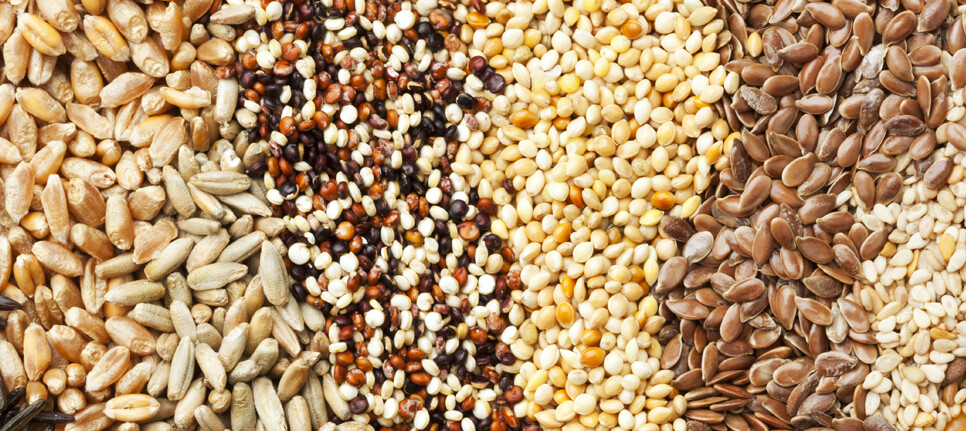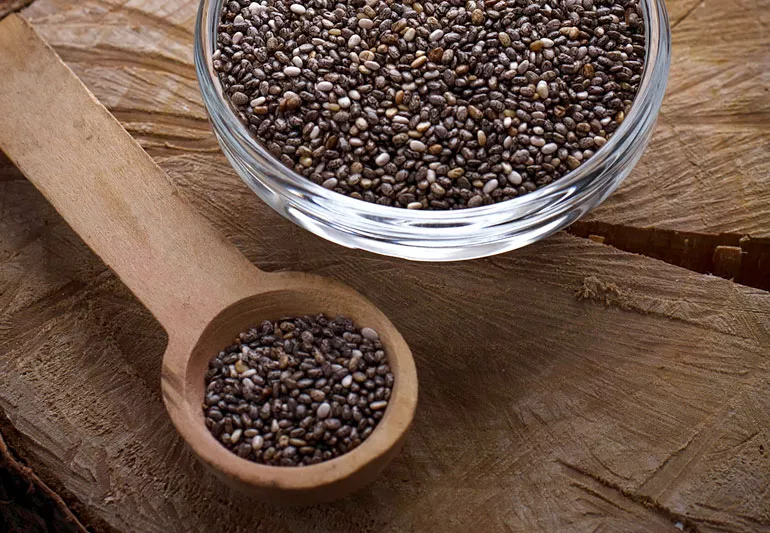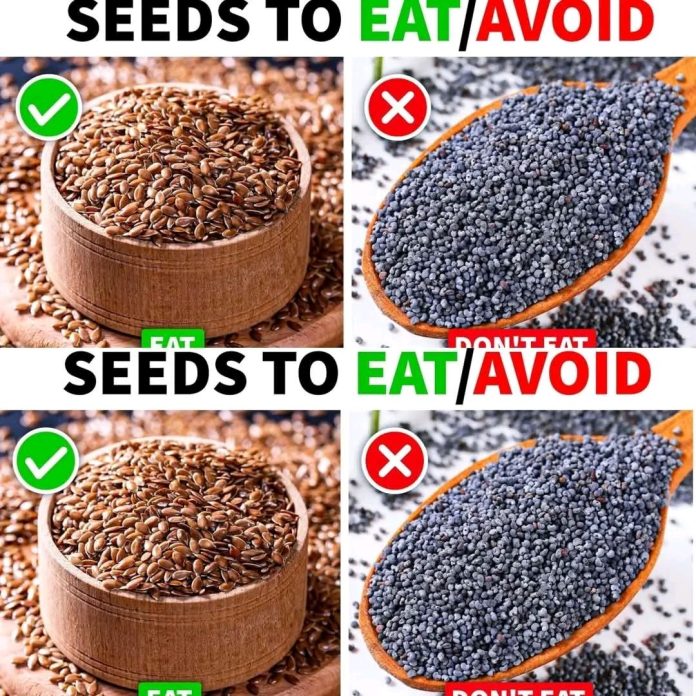4 Seeds You Should Include in Your Diet (And 4 You Should Avoid)
Seeds are often regarded as superfoods, packed with essential nutrients that can boost your health. However, not all seeds are created equal—some are extremely beneficial, while others may contain toxins or cause unwanted side effects. Here’s an overview of seeds you should embrace and those you should avoid.
4 Seeds You Should Include in Your Diet
1. Chia Seeds
Why Eat Them:
Chia seeds are a powerhouse of omega-3 fatty acids, fiber, and protein. They support heart health, improve digestion, and help maintain stable blood sugar levels.
How to Use:
Add them to smoothies, oatmeal, or yogurt, or prepare chia pudding for a healthy snack.
2. Flaxseeds
Why Eat Them:
Rich in omega-3 fatty acids, lignans (antioxidants), and fiber, flaxseeds promote heart health, improve digestion, and may help balance hormones.

How to Use:
Ground flaxseeds are easier to digest. Sprinkle them on salads, mix them into baked goods, or stir them into your morning smoothie.
3. Pumpkin Seeds
Why Eat Them:
These seeds are loaded with magnesium, zinc, and healthy fats, supporting bone health, immune function, and better sleep.
How to Use:
Enjoy them roasted as a snack or sprinkle them on soups, salads, or granola.
4. Sesame Seeds
Why Eat Them:
Sesame seeds are rich in calcium, magnesium, and antioxidants, making them great for bone health and reducing inflammation.
How to Use:
Add them to stir-fries, sprinkle them on bread, or use tahini (sesame seed paste) in your recipes.
Conclusion
Incorporating nutrient-rich seeds into your diet can provide a wide range of health benefits, from improved heart health to better digestion and stronger bones. Chia seeds, flaxseeds, pumpkin seeds, and sesame seeds stand out as excellent choices for enhancing your overall well-being. Their versatility makes them easy to include in various dishes, whether you’re preparing smoothies, salads, or baked goods.

However, it’s essential to remember that moderation is key, as consuming excessive amounts of even healthy seeds can lead to digestive discomfort or nutrient imbalances. Additionally, be mindful of how you prepare and consume these seeds to maximize their nutritional benefits—for example, grinding flaxseeds or soaking chia seeds before use.
Ultimately, making informed dietary choices can empower you to lead a healthier and more balanced lifestyle. By embracing these superfood seeds and avoiding those with potential toxins or adverse effects, you can take a significant step toward improving your nutrition and overall health. So go ahead, explore creative ways to enjoy these seeds, and let them contribute to your journey of well-being.
As you incorporate these seeds into your meals, take the time to experiment with different recipes and preparation methods. Small dietary changes, like adding seeds to your daily routine, can lead to big improvements over time. Remember that the key to long-term health is variety, so don’t hesitate to rotate the seeds you consume. Finally, pair these seeds with other nutrient-dense foods to create a balanced and wholesome diet that supports your overall wellness goals.
Share with your friends!

















